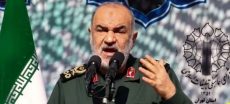[vc_row][vc_column][vc_column_text dp_text_size=”size-4″]The US Defence Secretary, Lloyd Austin, held discussions with Chief of Army Staff (COAS) General Asim Munir in Washington regarding regional security and defense collaboration between the United States and Pakistan. General Munir, who arrived in Washington for a weeklong visit on Sunday, was received by Austin, and their meeting covered recent developments in regional security along with potential areas for bilateral defense cooperation, as stated by Pentagon spokesperson Maj. Gen. Pat Ryder on Wednesday.
During this visit, Gen. Munir, appointed as Chief of Army Staff last year, is anticipated to engage with other high-ranking US officials, including National Security Adviser Jake Sullivan. Washington stands as one of Islamabad’s significant military and trade partners, highlighting the importance of this diplomatic engagement.
Read more : Pak Army Chief Leads Commanders Conference Meeting
This visit occurs amid escalating tensions between Pakistan and Afghanistan, exacerbated by repeated militant attacks on Pakistani security forces in border regions with Afghanistan. The tragic incident in Dera Ismail Khan on December 12, where at least 23 soldiers lost their lives in a militant attack on a security forces post, serves as a backdrop to the discussions. The terrorists employed an explosives-laden truck, and subsequent suicide attacks led to the collapse of the building, causing multiple casualties, as reported by the military’s media wing, Inter-Services Public Relations (ISPR). Six terrorists were also neutralized in the operation.
The situation has strained relations between Islamabad and the interim administration in Afghanistan, with Pakistan accusing them of supporting the Tehreek-e-Taliban-e-Pakistan (TTP). In contrast, Kabul denies any backing of militants or the use of its territory against Pakistan. The discussions between Gen. Munir and US officials become crucial in navigating and addressing the complex security dynamics in the region, fostering cooperation, and seeking potential solutions to regional challenges.[/vc_column_text][/vc_column][/vc_row]











